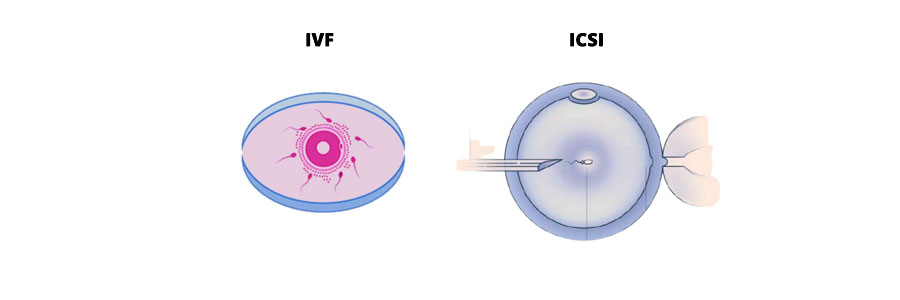IVF/ ICSI

In vitro fertilization (IVF) and intracytoplasmic sperm injection (ICSI) are advanced assisted reproductive technology (ART) procedures used to treat infertility when other fertility treatments have not been successful. Both IVF and ICSI involve fertilizing eggs with sperm outside the body in a laboratory setting, but they differ in the method of fertilization.
Here's an overview of the gynecologist's role in offering IVF/ICSI services:
- Initial Consultation and Evaluation: The process begins with an initial consultation where you gather detailed medical history from the couple, including information about their fertility journey, previous fertility evaluations or treatments, and any underlying medical conditions that may impact fertility. A thorough physical examination, including pelvic examination for the female partner and semen analysis for the male partner, may also be conducted.
- Assessment of Indications: You evaluate the indications for IVF/ICSI based on the couple's fertility diagnosis, which may include fallopian tube blockages, severe male factor infertility, ovulatory disorders, endometriosis, or unexplained infertility.
- Treatment Planning: Based on the evaluation and fertility diagnosis, you develop a personalized treatment plan for the couple, which may include IVF alone or ICSI if there are severe male factor infertility issues.
- Ovarian Stimulation: Prescribe fertility medications to the female partner to stimulate the ovaries to produce multiple eggs. And monitor the response to ovarian stimulation through ultrasound scans and hormone tests to ensure optimal follicle development.
- Fertilization: Fertilize the retrieved eggs with sperm in the laboratory using either conventional IVF or ICSI technique. In conventional IVF, sperm and eggs are combined in a culture dish and allowed to fertilize naturally, while in ICSI, a single sperm is injected directly into each mature egg using a specialized micromanipulation technique.
- Post-Transfer Care and Follow-Up: After the embryo transfer, provide post-transfer care and support to the couple. And schedule follow-up appointments to monitor the progress of the treatment cycle and conduct pregnancy testing to determine if conception has occurred.
- Counseling and Support: Throughout the IVF/ICSI process, will provide counseling, guidance, and emotional support to the couple. And address their questions or concerns, discuss treatment options, and provide reassurance and encouragement throughout their fertility journey.




